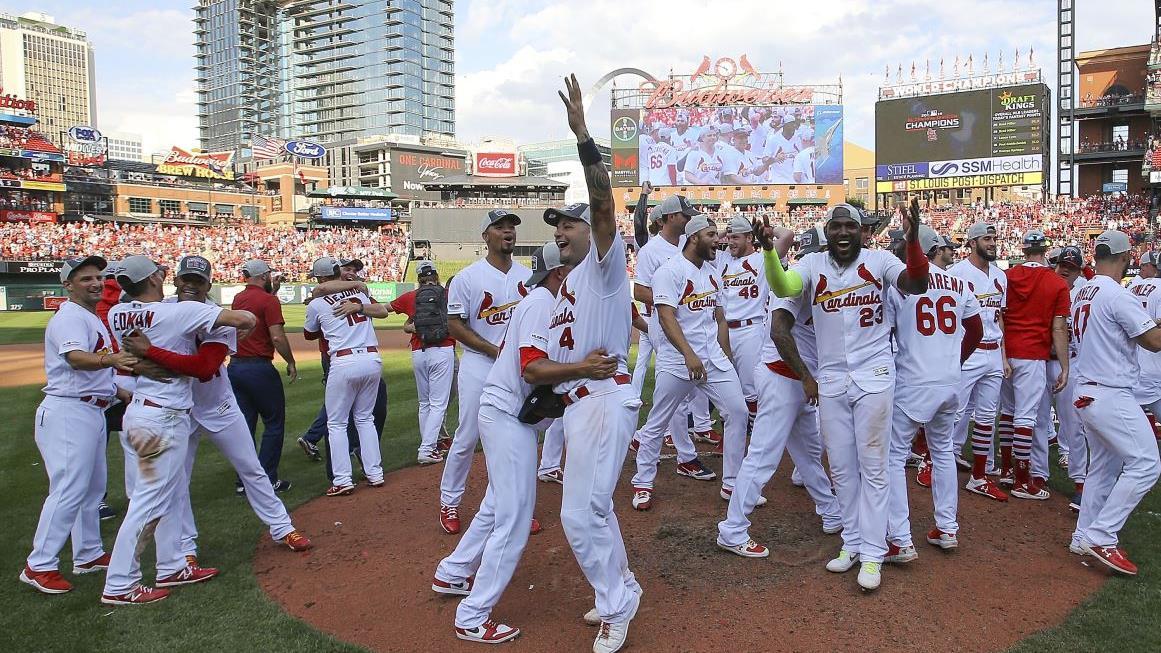Did MLB 'de-juice' baseballs for 2019 playoffs? League officials say no
With millions of dollars riding on TV ratings, Major League Baseball denies it “de-juiced” baseballs used during the 2019 playoffs despite complaints that balls are behaving differently this October than they did during a high-powered regular season.
Multiple playoff teams have noted that hard-hit balls appear to be traveling less distance than they did just weeks earlier. St. Louis Cardinals manager Mike Shildt said last Saturday that the team’s analytics showed a 4.5 feet-difference is average distance traveled for batted balls during the playoffs, while New York Yankees players raised questions after Didi Gregorius crushed a 99-mph fastball that was caught just in front of the right field fence during the team’s 4-1 loss to the Houston Astros in Game 3 of the ALCS.
In the case of St. Louis and the National League Championship on TBS, the Cardinals were swept in four games by the Washington Nationals. If Cards were denied home runs because of a change in the ball, it not only cost the team but may have cost TBS as well. Post-season revenue is dependent on how many games the NLCS, the ALCS and the World Series air past the minimum of four games. Games five, six, and seven can be a big financial bonus for TBS in the case of the NLCS or Fox in the case of the ALCS and World Series.
Question about the balls arose after a Baseball Prospectus analysis by data scientist Rob Arthur found that based on drag coefficient, which affects how baseballs fly through the air, there was a “one-in-a-million chance” that balls used this postseason are the same as those used during the regular season. Despite that allegations, MLB, which co-owns its longtime baseball manufacturer Rawlings, denies any change took place.
“The baseballs used in Major League Baseball are manufactured in batches,” MLB said in a statement. “Balls that are used in the postseason are pulled from the same batches as balls used in the regular season. Regular season and postseason balls are manufactured with the same materials and under the same processes.”
MLB and Seidler Equity Partners purchased Rawlings in January 2018 for $395 million. At the time, a top MLB official said the deal would allow MLB to “provide even more input and direction on the production of the official ball of Major League Baseball.”
Seidler Equity Partners did not immediately respond to a request for comment on the situation.
The apparent evidence of a “de-juiced” baseball surfaced just weeks after MLB officials contended with allegations of the opposite variety. Players slugged a record 6,776 home runs during the regular-season, shattering the previous high mark by 671 home runs.
The home run surge led Astros ace Justin Verlander to suggest last July that the league was “turning this game into a joke” by altering the manufacturing process of its baseballs to promote offense. MLB Commissioner Robert Manfred acknowledged at the time that baseballs were producing less drag after contact, but denied the difference was due to any action taken by the league.
“Baseball has done nothing, given no direction for an alteration in the baseball,” Manfred said during a press conference prior to the 2019 All-Star Game.
GET FOX BUSINESS ON THE GO BY CLICKING HERE
With the National League’s Washington Nationals already championship-bound and the Astros and Yankees battling to determine the American League’s representative, the performance of MLB baseballs is set to be a major storyline during the World Series.
“There was a couple that were hit you kinda scratch your head at, that you think would have left the ballpark maybe during the season,” Yankees relief pitcher Chad Green told the New York Daily News on Tuesday. “But yeah, I’m not sure.”




















